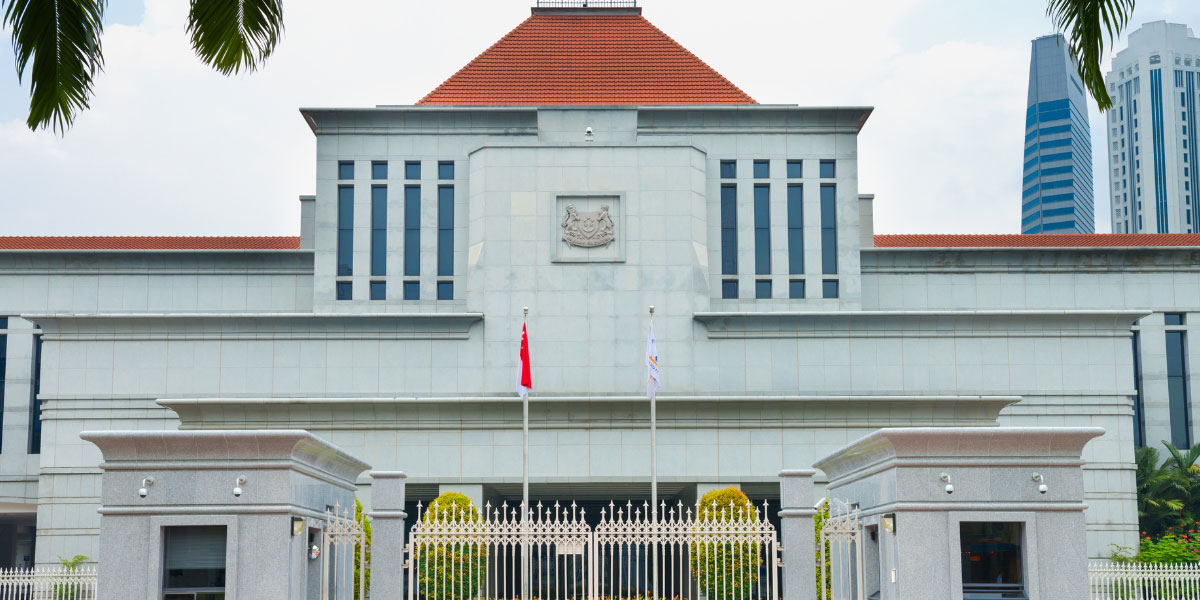The Inland Revenue Authority of Singapore has released Advance Ruling Summary No. 7/2024, addressing the classification of hybrid instruments and related matters on 1 November 2024.
- Subject:
Whether:
- The fixed rate subordinated perpetual securities (the “Securities”) will be regarded as “debt securities” for the purpose of Sections 13(16) and 43H(4) of the Income Tax Act 1947 (“ITA”) and Regulation 2 of the Income Tax (Qualifying Debt Securities) Regulations (“QDS Regulations”);
- The Distributions (including Arrears of Distribution) (capitalised terms defined below) arising from the Securities will be regarded as interest payable on indebtedness and holders of the Securities (“Securityholders”) may enjoy the tax concessions and exemptions available for qualifying debt securities (“QDS”) in respect of such Distributions (including any Arrears of Distributions), provided that all the other conditions for the QDS scheme are satisfied; and
- Distributions (including any Arrears of Distributions) arising from the Securities will be tax deductible as “sums payable by way of interest” under Section 14(1)(a) of the ITA, provided that the other conditions for making a deduction are met,
Relevant background and facts:
- The Issuer is a listed company incorporated in Singapore and has issued the Securities.
- The key features of the Securities include the following:
- The Securities confer a right to the Securityholders to receive fixed-rate distributions (“Distributions”) independent of the economic performance of the Issuer.
- The Distributions are payable semi-annually in arrears (each a “Distribution Payment Date”) and the distribution rates bear a step-up feature which provides for an increase in the rate of distribution at specific points in time.
- The Issuer may, at its sole discretion, elect not to pay a Distribution (or to pay only part of a Distribution) scheduled to be paid on a Distribution Payment Date (such deferred Distributions constitute “Arrears of Distribution”) by complying with certain notice requirements, and elect to further defer any Arrears of Distribution.
- The Issuer is not subject to any limit as to the number of times Distributions and Arrears of Distribution can or shall be deferred. The Arrears of Distribution do not accrue interest.
- The Issuer is obliged to satisfy any outstanding Arrears of Distribution (in whole but not in part) upon the occurrence of certain events; or may at its sole discretion, and at any time, elect to pay the Arrears of Distribution (in whole or in part) by complying with certain notice requirements.
- Subject to certain exceptions, the Issuer may not elect to defer payment of Distributions if, during the specified period ending on the day before the scheduled Distribution Payment Date, a discretionary dividend, distribution or other payment has been declared or paid in respect of the Issuer’s ordinary shares or other junior obligations or, (except on a pro rata basis) parity obligations; or any of the Issuer’s ordinary shares or other junior obligations, or (except on a pro rata basis) parity obligations has been redeemed, reduced, cancelled, bought back or acquired for any consideration.
- Subject to certain exceptions, following the Distribution Payment Date on which any Distribution is deferred, the Issuer shall not declare or pay any dividends, distributions or make any other payment on, and redeem, reduce, cancel, buy-back or acquire for any consideration in respect of any of the Issuer’s ordinary shares or other junior obligations or, (except on a pro rata basis) parity obligations, unless and until either the Issuer has satisfied in full all outstanding Arrears of Distribution or is permitted to do so by an extraordinary resolution of the Securityholders.
- The Securities have no fixed redemption date but may be redeemed at the option of the Issuer in certain instances. Upon redemption of the Securities by the Issuer, the Securityholder will receive the principal amount of the Securities plus any unpaid Distributions (including any Arrears of Distributions) up to the date of redemption.
- The rights of Securityholders to payment of principal of and distribution on the Securities are expressly subordinated and subject in right of payment to the prior payment in full of all claims of senior creditors of the Issuer but at least pari passu with all other subordinated obligations of the Issuer that are not expressed by their terms to rank junior to the Securities but are ranked higher than share capital in the event of insolvency.
- The Securities take the legal form of a debt instrument and the Securityholders are reflected in the Issuer’s register of debenture holders. The Securities do not result in the Securityholders acquiring shareholding and residual interest in the Issuer nor confer on the Securityholders any voting right at general meetings or the right to participate in the business operation of the Issuer. The payment of the Distributions is not subject to the requirement in the Companies Act 1967 that dividends be paid out of distributable profits only.
- For accounting purposes, the Securities are treated as equity in accordance with Singapore Financial Reporting Standards (International) 1 – 32.
- The issuance of the Securities is, among others, to facilitate refinancing of the existing notes issued by the Issuer.
- Relevant legislative provisions:
- Income Tax Act 1947 – Sections 13(16), 14(1)(a) and 43H(4)
- Income Tax (Qualifying Debt Securities) Regulations
- The rulings:
- The Securities will be regarded as “debt securities” for the purpose of Section 43H(4) of the ITA and Regulation 2 of the QDS Regulations.
- The Distributions (including Arrears of Distribution) payable on the Securities will be regarded as interest payable on indebtedness and will enjoy the tax concessions and exemptions available for QDS provided that the other requisite conditions for the Securities to be QDS are satisfied.
- The deductibility of the Distributions (including Arrears of Distribution) is subject to a detailed examination of the use of the proceeds from the issuance of the Securities. The Issuer will be allowed a tax deduction if:
- such Distributions (including Arrears of Distribution) are incurred on capital (raised through the issuance of the Securities) employed in acquiring the income of the Issuer that is chargeable to tax; and
- the conditions governing the deductibility of expenses under Section 14 of the ITA are met and the deduction is not prohibited under any other provisions of the ITA.
- The Distributions (including Arrears of Distribution) will be deductible only when they are legally due and payable and not based on their scheduled Distribution Payment Dates.
- Reasons for the decision:
- The facts and representations provided, including the key features of the Securities described in paragraph 2b above, generally support the characterisation of the Securities as “debt securities” for the purpose of Sections 13(16) and 43H(4) of the ITA and Regulation 2 of the QDS Regulations.
- Following the characterisation of the Securities as a debt instrument for tax purposes, the Distributions (including Arrears of Distribution) are regarded as interest payable on indebtedness. The Securities will be regarded as QDS under the ITA and the Distributions (including Arrears of Distribution) will enjoy the tax concessions and exemptions available for QDS provided that the other requisite conditions for the Securities to be QDS are satisfied.
- General Reference:
- Taxpayers may refer to the IRAS e-Tax Guide “Income Tax Treatment of Hybrid Instruments” (“e-Tax Guide”) for further guidance. In particular, paragraph 5 of the e-Tax Guide states the approach and factors that the Comptroller of Income Tax considers when determining the characterisation of a hybrid instrument. Paragraphs 7 and 9 of the e-Tax Guide further explains the deductibility of distributions from the issuer to the investor and the timing of deductions by the issuer.














